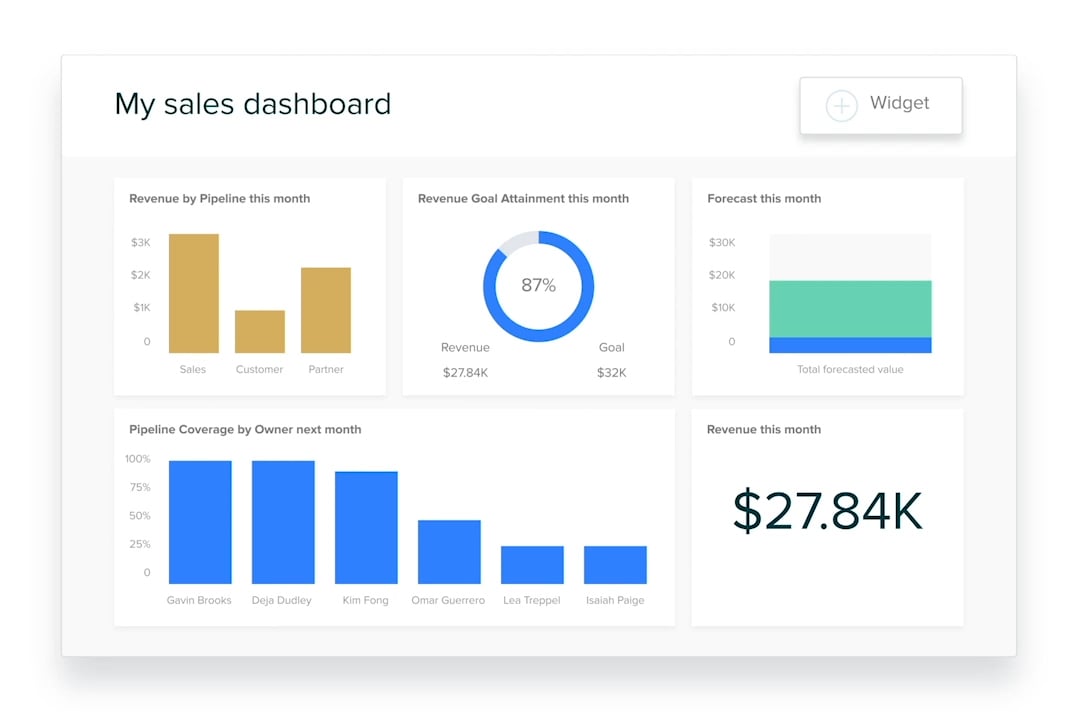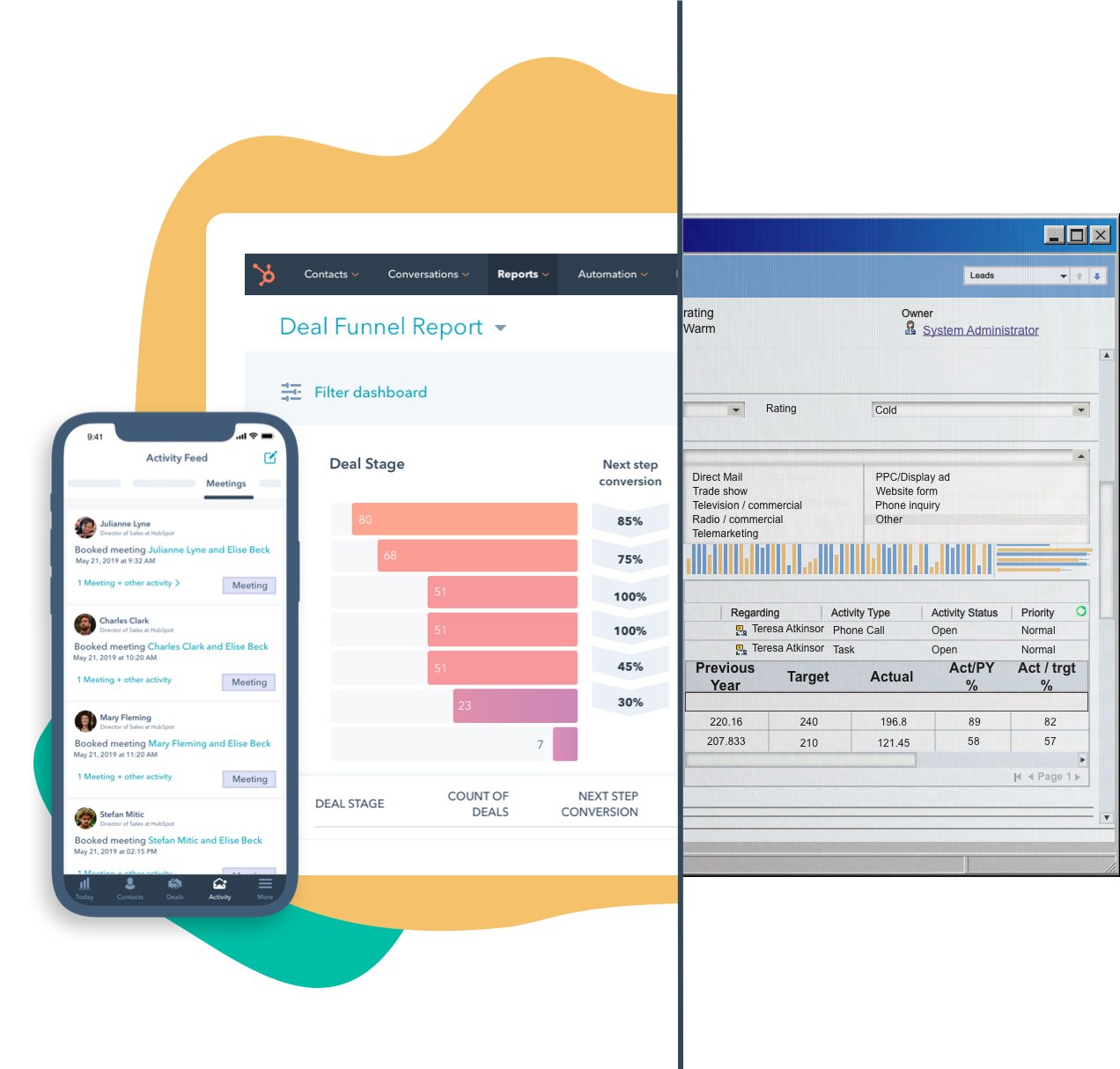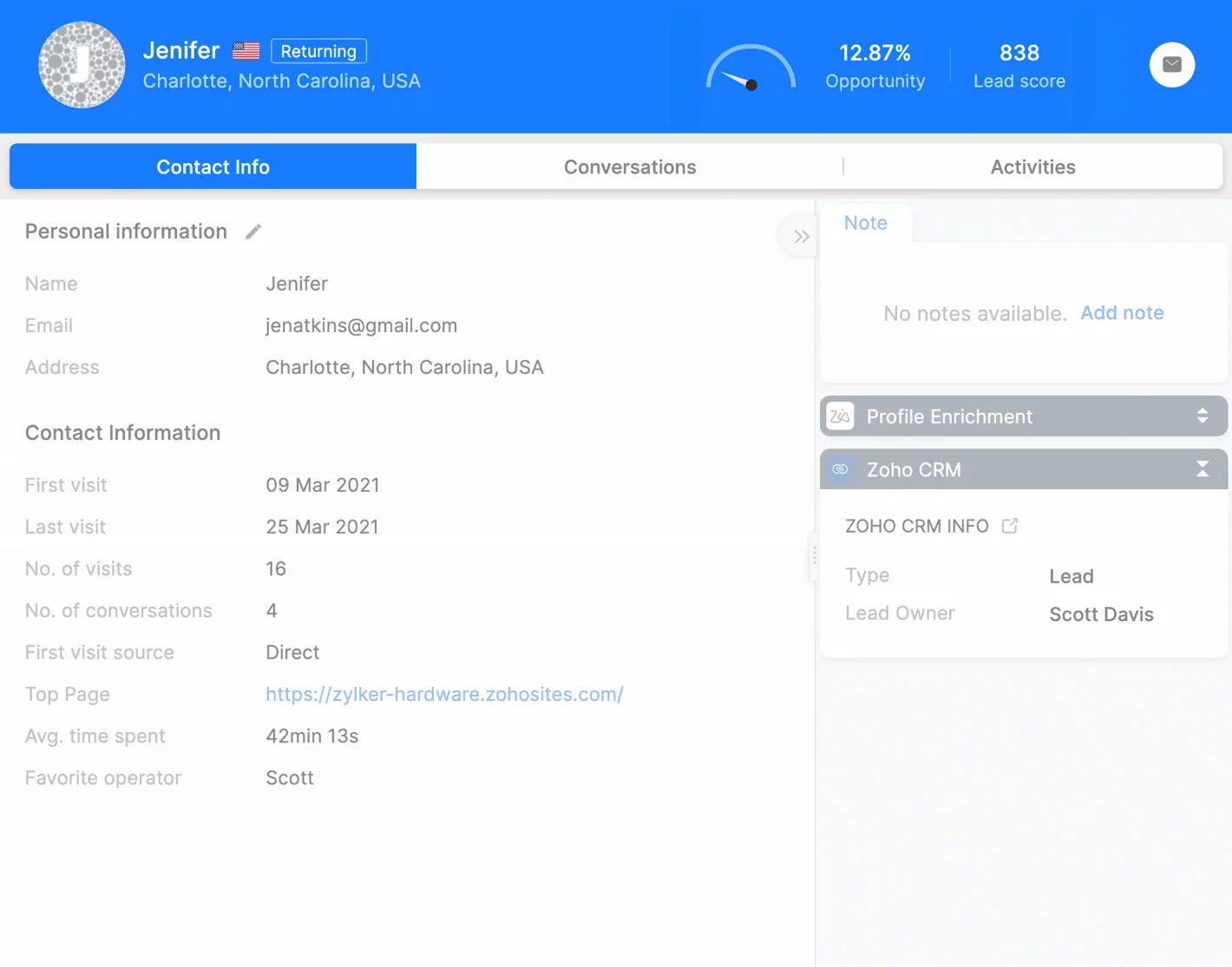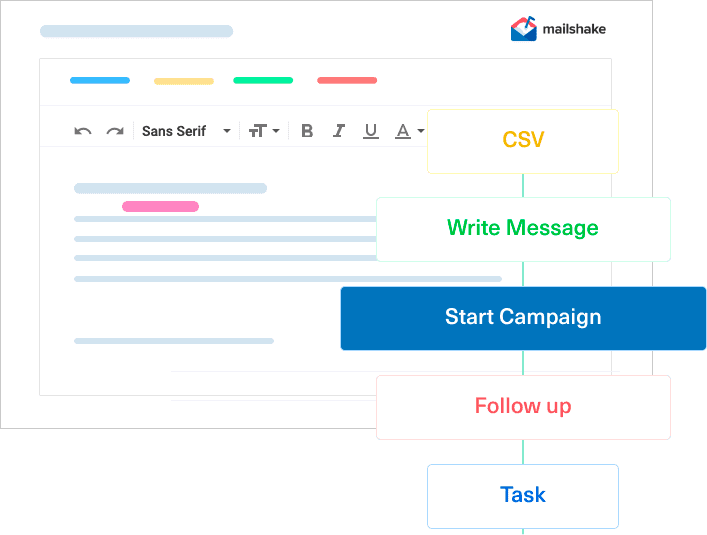10 Best Sales Engagement Platforms: A Definitive Guide
Create personalized touchpoints that convert using an end-to-end sales engagement platform.
A guide to the best sales engagement platform
Last updated May 3, 2023
Sales software is a hot industry right now. And it isn’t showing signs of slowing down. According to Aragon Research, the industry is projected to grow to $5 billion by 2023.
Businesses everywhere are discovering the benefits of using sales technology to streamline their operations. And sales engagement software is one of the most popular tools out there.
In this comprehensive guide, we’ll explore how using a sales engagement platform helps businesses facilitate communication at each step of a customer’s journey. All while keeping their teams on the same page and closing deals faster.
We’ll answer the following questions about the functions and benefits of a sales engagement platform and their features. Then we’ll share the top 10 platforms on the market today.
- What is a sales engagement platform?
- What are the benefits?
- What makes a good sales engagement platform?
- How are sales engagement solutions different from sales enablement ones?
- Best sales engagement tools
- How do you choose the right one?
- Frequently asked questions
- Try one for free
What is a sales engagement platform?
Sales engagement software is a digital tool that helps companies take more control of how they interact with their customers. It’s where sales and marketing processes align to figure out how to orchestrate interactions that are positive for the customer. And productive for your company.
Sales engagement solutions are good for businesses who find it difficult to engage with customers in an organized, standardized way. You may have stumbled across sites about CRM while researching this—customer relationship management. That’s because CRM offers many of the same features.
Some sales engagement platforms exist as stand-alone applications that can be integrated with your existing CRM for easy navigation between the two. Many end-to-end CRM platforms simply include engagement features of their own.
What do sales engagement platforms do?
What don’t they do? Businesses use them for a lot of things, including:
- Automating selling actions, such as sending email follow ups
- Gathering customer insight, so they can prospect for better qualified leads
- Reaching out to customers over their preferred channels
- Organizing their daily activities and tasks
- Analyzing sales data and generating reports, so they can make smarter choices
- And more
Sales engagement platforms cover a lot of ground. But the main thing it does is allow businesses to communicate effectively with prospects and customers from a single, easy-to-use platform. That way, your customers can always have positive interactions on their preferred channels.
Why do you need a sales engagement platform?
As these tools grow in popularity, more and more businesses are discovering their benefits. You can bet your competition will be trying it out sooner or later.
You need a sales engagement platform to keep your customers’ buying experience fast, positive, and stress-free. It gives reps the tools to automate tasks, deliver high-quality touchpoints along your pipeline. By working with the most accurate, organized, and up-to-date information, they’ll have a faster and more profitable sales cycle that keeps them ahead of the competition.
What are the benefits of using sales engagement software?
- You’ll be better organized.
No more switching tabs or digging through spreadsheets. With everything you need organized in one place, reps can work faster and more efficiently. That means they’ll be in a better position to engage with customers. Better yet, better organization means fewer chances of a lead or communication slipping through the cracks and causing embarrassing (or costly) mistakes down the road. - You’ll always know your next step.
The best sales engagement software includes a sales pipeline tool. This allows companies to create a custom plan with clear steps to closing deals.
With this tool, reps will be able to see exactly where each customer is on their customer journey. This means they don’t have to rely on their memories or dig through prior communications to know what step to take. - You’ll be able to close deals faster.
Sales engagement software typically comes with some kind of sales automation. This means that many of the tasks involved in the sales process can be performed quickly and automatically. That takes out the dead space between interactions that usually happen when sales reps are too busy with other tasks to perform basic administrative tasks. - You’ll reach your customers before the competition does.
In sales, sometimes the winner is simply the one who got there first. If you let too much time go by before reaching out to leads, it’s likely that they’ll already be gone by the time your introductory email arrives.
Sales engagement platforms come with templates and automated actions. These let you initiate personalized interactions with leads as soon as you find them, even if you’re busy with a dozen other tasks. That way, your introductory email can be in your hot lead’s inbox before the competitions’. - You’ll be able to pinpoint places for improvement.
Sales engagement platforms collect data related to sales performance. They’re also used to predict and forecast future numbers. Using these functions, it will become obvious what areas of your pipeline need improvement. And which marketing tactics bring in the highest quality leads.
If you can identify which parts of your business procedures really make your customers tick, you can lean into those approaches. And ultimately close more deals.
What makes a good sales engagement software?
A good sales engagement platform can truly boost productivity and sales. But the wrong one will just cause headaches and disappointment.
In the following section, we’ll discuss the main features to look for when investing in software.
-
A centralized communications hub
The best sales engagement platform allows reps to access any and all information they may need to engage with customers in one place. This means that any mode of communication your customers prefer-from email to phone, from social media to SMS-can be accessed and used by your agents from a single central dashboard.
These platforms also include tools for quickly retrieving and reviewing prior communications between your reps and prospects. This means you can examine past interactions and get deeper insights into how your reps are currently engaging with your customers. - Tools for creating & managing standardized sales content
Sales engagement software helps businesses create and manage their standardized selling content. Phone scripts and email templates that are personalized and written with intention have much better success than just letting your rep make their pitch up on the spot. And if you write a phone script or email with intention, you should have an efficient way of making sure your reps have access to them and are using them correctly.
Sales prospecting tools typically help with cold calling or cold emailing. Having a standardized cold calling script or email template that can easily be personalized allows your sales reps to deliver a consistent but personal sales pitch. Plus, your software should offer a simple method for updating scripts and templates. All to ensure that everyone is using the most up-to-date version. - Workflow automation tools
The faster you can engage with leads, the more likely you are to turn them into customers. That’s why automation is a lifesaver when it comes to performing outreach sales engagement at scale.
By automating repetitive tasks, reps don’t have to spend so much time on data entry, scheduling meetings, and sending follow-up information. Sales engagement software allows you to set up triggered actions so that you can engage with hot leads the moment they express interest. Even if you’re busy elsewhere.
For instance, the moment a new lead submits an email through your landing page, your platform can be automatically triggered to send a personalized welcome email in response to the submission. The customer knows what the next step is-all without your rep lifting a finger. - Lead generating, scoring and nurturing
Businesses should have the ability not just to generate leads, but to score and track them as well. Like lead generation software, sales engagement involves a process of finding, categorizing, and grouping your leads before the pitch really begins.
Once your lead scoring system establishes who the most qualified leads are, reps can focus their efforts on the prospects who are most likely to buy. Then, when the leads are in your funnel, your reps need tools for lead tracking. Then they’ll know what steps to take next in order to get those qualified leads to close.
Many sales engagement platforms also offer sales funnel software for gathering leads and nurturing them through the process. This allows reps to nudge leads helpfully along the funnel and offer valuable content that will keep them engaged. - Sales performance analytics
A sales engagement platform will also use sales reporting software to provide accurate snapshots of where the team currently stands in relation to their goals. It can also help identify areas of the sales process that could use improvement.
With a sales pipeline tool, you can create a custom plan for your customer’s desired journey. Reps also get a clean visual of how far along each of their leads are. Along with what steps they must take next to ultimately close a deal.
How are sales engagement platforms different from sales enablement platforms?
It’s easy to confuse engagement and sales enablement. It doesn’t really help that they sound so similar. But the confusion is mostly caused by the fact that some of the features offered by both platforms fulfill the same purpose.
But let’s focus on the key difference. In sales enablement, the focus is on making sure that agents have all of the information they and their customers need the moment it’s needed. Engagement, however, is more focused on making sure that reps are empowered to communicate that information in a way that’s most likely to resonate with the customer.
What is the best sales engagement platform?
Zendesk Sell

The innovators at Zendesk know that sales engagement can be complicated—so they aim to keep things simple. They’ve created a comprehensive customer relationship management platform that also boasts an array of impactful sales engagement features with Zendesk Sell. It includes user-friendly functions for interacting with customers seamlessly on their preferred channels, gathering and analyzing critical customer data, and managing standardized content. Put simply, Sell allows reps to interact with the right people efficiently and understand what works and what doesn't.
Zendesk Sell also has powerful tools for generating high quality leads. The program uses artificial intelligence to quickly qualify and route leads to the right rep, allowing them to engage with the leads most likely to buy before the competition gets to them.
Zendesk Sell is a cloud-based CRM sales platform with mobile capability that services both small and large businesses. It’s also the kind of platform that can scale with your growth. That ensures you won’t outgrow the software’s capabilities as your customer base gets bigger.
Features:
- Sales CRM dashboard
- Lead generation
- Sales engagement
- Prospecting tools
- Workflow automation
- Reporting and analytics
Clearbit

Clearbit is a marketing data software focused specifically on B2B businesses. Their approach to providing up-to-date data means that they continually refresh data every 30 days. It also offers a prospector tool that gives users access to 200 million contacts. It allows them to search for ideal prospects by setting parameters.
Clearbit’s Enrichment feature automatically adds the latest data to each contact in your CRM database. The software also partially generates leads by tracking visitors to the company website. Clearbit then scores these leads, and routes them to the appropriate rep.
Features:
- Lead capture
- Performance metrics
- Campaign management
- Email marketing
- Proposal generation
Hubspot

Hubspot includes five hubs: marketing, sales, service, content management system tools, and operations. Like Zendesk, it’s another CRM platform that also includes selling tools. The Hubspot Sales Hub is where the engagement functionality is.
Hubspot offers a customizable visual pipeline so users can track where they stand with each customer in real time. The software also tracks emails and calls and automatically logs them in the CRM database. Hubspot offers integrations with most major communication channels, including email and social media.
Features:
- Contact management
- Referral tracking
- Forecasting
- Customer database
- Lead management
Zoho SalesIQ

Zoho SalesIQ is an offshoot of Zoho CRM, a larger CRM database. It’s meant to be integrated with a CRM and other communication channels. The software focuses on timing, and gathers data on customers and leads with the aim of pinpointing the exact right time for a rep to reach out.
Zoho Sales IQ also offers a live chat feature, so users can communicate with customers in real-time. Users can also create and customize a chatbot to engage customers in small talk and answer basic questions on their timetable.
Features:
- Third party integrations
- Website visitor tracking
- Live chat
- Content creation
- Reporting/Analytics
Apollo.io

Apollo.io aims primarily to pinpoint areas that can be improved in the user’s business practices for companies looking to increase deals. Through data-gathering and analysis, users are encouraged to define and utilize best practices that generate the most success.
Apollo.io’s prospect searcher tool allows users to filter through millions of potential contacts. The software also offers an integration where prospecting can be done specifically through LinkedIn. The highest scoring leads are added directly to a CRM database.
Features:
- Call list management
- Correlation analysis
- Collaboration tools
- Prioritization
- Prospecting tools
Freshsales

Freshsales is a platform meant to support reps through the entire process—from attracting leads to closing the deal. Freshsales offers a complete view of each lead’s interactions with company content. It also lets users create customizable web forms to capture data, and track customer interactions with web pages and email.
Additionally, Freshsales aims to automate as many repetitive actions as possible. The platform offers an AI chatbot named Freddy who can speak with customers in real time. The platform also offers internal collaboration tools, such as an integration with Slack, which allows for smoother communication across teams.
Features:
- Lead nurturing
- Data management
- Event triggered actions
- Workflow automation
- Mobile access
Mailshake

Mailshake offers integrations with most top brand CRM platforms. The platform focuses on making outreach automatic, so leads are contacted as soon as they are discovered.
Mailshake automates and manages email outreach campaigns, and allows for personalization, both within the communications themselves and the sequences. The software also gathers data on customer interaction, and will tell users which leads view their emails and click on company links. Mailshake also offers integrations with Outlook, GSuite, Slack, and many other popular communication channels.
Features:
- Dynamic content
- Template management
- Subscriber management
- Event triggered actions
- Lead management
Salesloft

Salesloft is built for revenue team collaboration within larger businesses. The platform houses all communication channels on one dashboard and offers one-click dialing or texting from any device.
The Modern Revenue Workspace, the name of their dashboard, brings together automated tasks, communication, playbooks and more. Users can create a customized pipeline and playbooks, which can then be distributed to sales reps to streamline company voice and brand. The software also forecasts sales, and offers outcome dashboards so reps can examine their performance.
Features:
- Prospecting tools
- Lead distribution
- Customer database
- Interaction tracking
- Meeting management
Pipeline

Pipeline is another CRM-based platform that offers helpful features to keep reps and prospects interacting. It was built specifically for small and mid-sized businesses, and aims to help them close deals faster. The software offers unlimited storage for all company documents, data and communications.
Pipeline runs email campaigns and tracks which customers open and download company content. Teams can also communicate internally within the system and use its permission feature, which lets them share information with specific team members. Pipeline also offers integrations with popular business apps like GSuite and Quickbooks.
Features:
- Internal chat integration
- Lead qualification
- Social media integration
- Marketing automation
- Email marketing
Salesforce Sales Cloud

Salesforce Sales Cloud, the sales engagement component of Salesforce CRM, aims to source data directly from your CRM. Then feed it into the sales and marketing processes.
Salesforce automatically sources information to personalize company quotes and invoices with relevant information. It also allows users to track the products involved in their deals, and set up restocking schedules. Salesforce also gathers data for forecasting and tracking progress, and can be used on mobile phones so users can work from anywhere.
Features:
- Lead nurturing
- Email marketing
- Pipeline management
- Forecasting
- Activity dashboard
How do you choose the right sales engagement platform?
There are a few things to consider when choosing a sales engagement platform. Ask yourself these questions to help get you closer to selecting the right software for your business.
- Are you already using a CRM platform, and if so, does it have the option to add sales engagement features?
- Can you find a sales engagement platform that integrates with the platforms (email, CRM, etc.) that you already use?
- How large is your business? Some platforms are specifically for small or large businesses, while others are flexible and grow with you.
- What features of sales engagement software would be most beneficial to your unique sales process and customer base?
Committing to a new platform is an investment that may seem daunting. Luckily, many platforms offer tools and training to get your team acclimated and comfortable with the software as fast as possible.
One way to ease your mind is to keep an eye out for platforms that offer a free trial. That way, you and your teammates can give the software a test drive to make sure it’s the right fit before you commit to a contract.
Frequently asked questions
Ready to try sales engagement software?
If you’re looking to give sales engagement software a try, Zendesk Sell is a user-friendly platform that encompasses all the best features of sales engagement.
Zendesk already boasts a powerful sales CRM database that engagement tools can pull from. Plus, with its easy-to-use interface, users can start improving engagement sooner rather than later.
Curious but not ready to commit? Zendesk offers a 14-day trial that allows you to try its time-saving automated features, pipeline tools, and organizational functions.
We have more information about this. Have a look below.
There’s a lot more where this came from. Keep exploring the world of sales engagement platforms.
